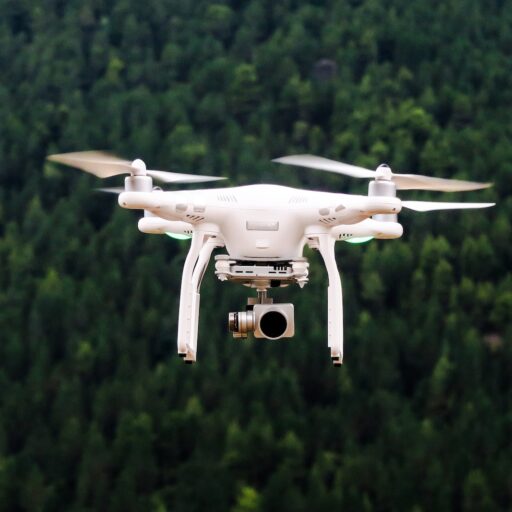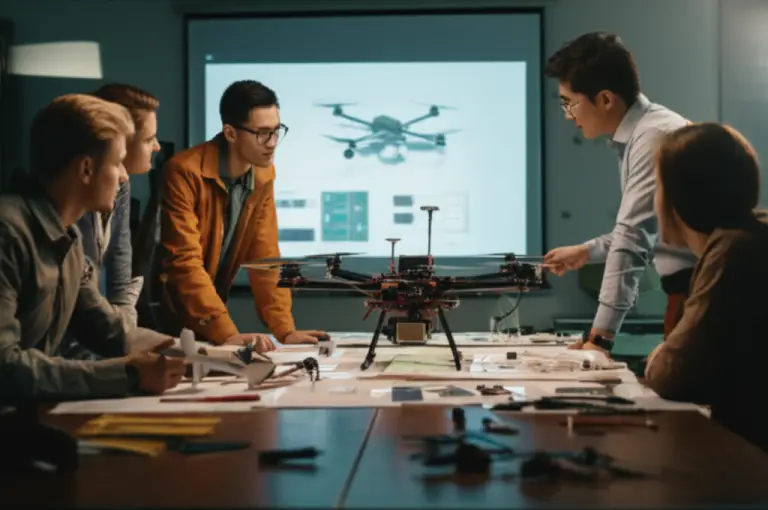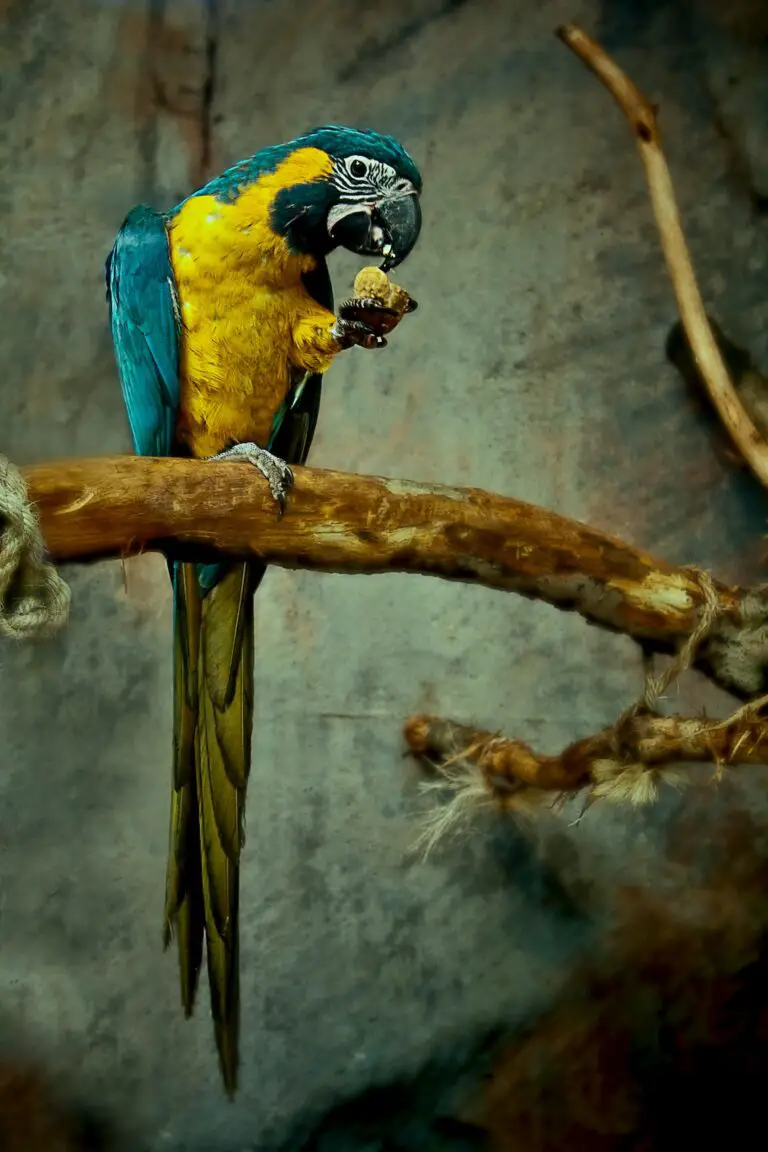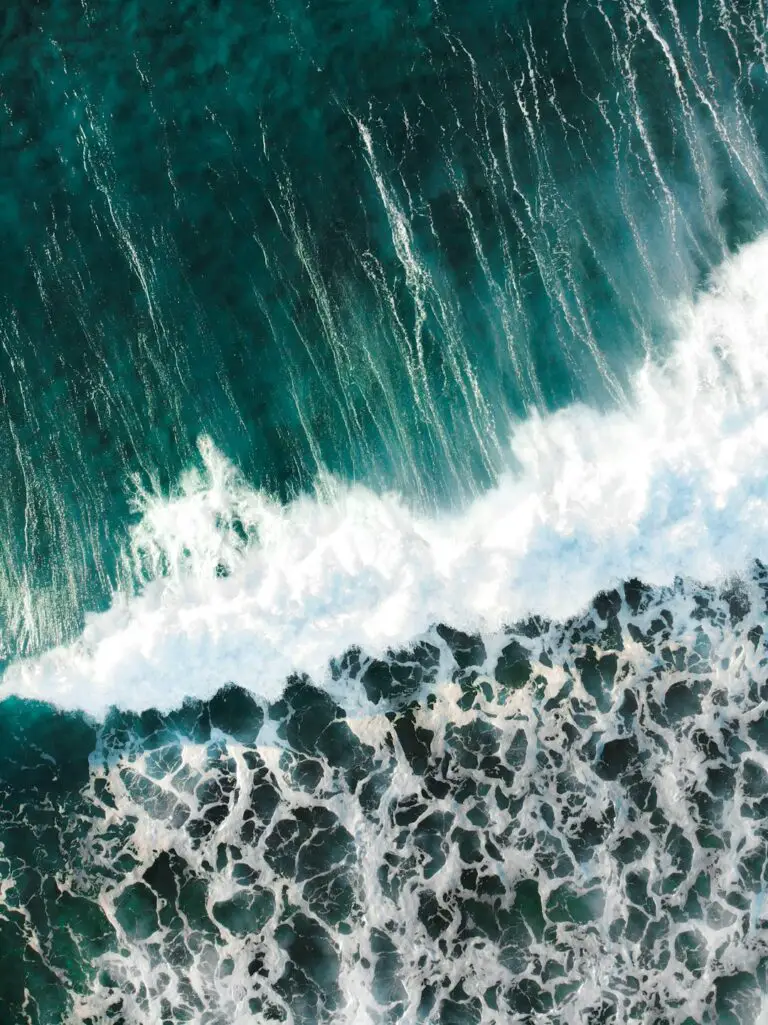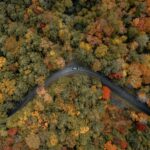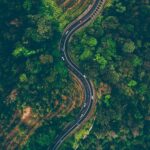Support our educational content for free when you purchase through links on our site. Learn more
Can I Build My Own FPV Drone or Buy Pre-Made? 🤔 (2025)
Ever found yourself staring at a sleek FPV drone and wondering: Should I build one myself or just buy a ready-to-fly model? You’re not alone! At Drone Brands™, we’ve seen countless pilots wrestle with this very question. Building your own FPV drone can feel like crafting a custom race car for the skies—thrilling, rewarding, but also challenging. On the flip side, pre-made drones promise convenience and reliability but might limit your customization dreams.
In this comprehensive guide, we break down everything from the essential components you’ll need to build your own, to the pros and cons of buying pre-made drones from top brands like iFlight and BetaFPV. Curious about how much money and time you’ll save? Or whether digital FPV systems like DJI’s are worth the hype? Stick around—we’ll answer these questions and more, helping you decide which path fits your flying style and goals best.
Key Takeaways
- Building your own FPV drone offers unmatched customization and learning opportunities but requires time, patience, and some technical skills.
- Pre-made FPV drones provide convenience, tested quality, and are ideal for beginners or those who want to start flying immediately.
- Crashes are inevitable in FPV flying; building your own drone equips you to repair quickly and cost-effectively.
- Top brands like iFlight, BetaFPV, and DJI offer excellent pre-made options catering to different skill levels and budgets.
- Understanding components like motors, ESCs, and flight controllers is crucial whether you build or buy.
Ready to explore the sky-high world of FPV drones? Let’s dive in!
Table of Contents
- ⚡️ Quick Tips and Facts About FPV Drones
- 🚀 FPV Drone Building Basics: What You Need to Know
- 🛠️ 12 Essential Components for Building Your Own FPV Drone
- 🔧 Step-by-Step Guide: How to Build Your Own FPV Drone
- 🤔 Buy vs Build: Pros and Cons of Pre-Made FPV Drones
- 💡 Top 10 Tips for Choosing the Right FPV Drone for You
- 🎯 Best FPV Drone Brands for Beginners and Pros
- 📈 How to Customize and Upgrade Your FPV Drone Like a Pro
- 🛡️ Safety First: Best Practices for Building and Flying FPV Drones
- 💸 Budget Breakdown: Building Your Own FPV Drone vs Buying Pre-Made
- 👨👩👧👦 Join the FPV Drone Builders Community: Tips and Resources
- 📚 FPV Drone Troubleshooting: Common Issues and How to Fix Them
- 🌍 Environmental Impact: Building vs Buying FPV Drones
- 🔮 The Future of FPV Drones: Trends and Innovations to Watch
- 🎉 Conclusion: Should You Build or Buy Your FPV Drone?
- 🔗 Recommended Links for FPV Drone Enthusiasts
- ❓ Frequently Asked Questions About FPV Drones
- 📖 Reference Links and Further Reading
⚡️ Quick Tips and Facts About FPV Drones
Welcome to the thrilling world of FPV (First-Person View) drones! Whether you’re eyeing that adrenaline-pumping aerial adventure or just curious about the tech behind the buzz, here are some quick facts and tips from the drone pilots at Drone Brands™ who live and breathe FPV.
- FPV drones give you a pilot’s-eye view via goggles or screens, making flying feel like a video game come to life.
- Crash frequency is high for beginners—expect to crash often, especially in the first 20 hours of flying. This is why repairability and knowing your drone inside-out is crucial.
- Building your own FPV drone can save money in the long run but requires patience and a learning curve.
- Pre-made drones offer convenience but can be pricier and less customizable.
- Popular flight controller software: Betaflight is the industry standard for custom builds.
- Top brands for pre-made FPV drones: iFlight, EMAX, and BetaFPV are favorites among pilots for durability and performance.
- Digital FPV systems like DJI FPV offer crystal-clear video but come with a higher price tag and complexity.
- Tiny Whoops are great starter drones for indoor flying and learning basics safely.
If you want to dive deeper, check out our full FPV drones guide for everything from beginner tips to advanced tricks.
🚀 FPV Drone Building Basics: What You Need to Know
Before you grab your soldering iron or hit “buy” on a shiny pre-made drone, let’s get grounded in the basics of FPV drone building.
What is an FPV Drone Build?
Building an FPV drone means assembling all the components yourself: frame, motors, ESCs (electronic speed controllers), flight controller, camera, video transmitter, and more. It’s like building a custom race car but in the sky.
Why Build?
- Customization: Tailor your drone’s speed, agility, and camera setup to your flying style.
- Learning: Gain intimate knowledge of how drones work, making repairs and upgrades easier.
- Cost Efficiency: You can source parts cheaper, especially if you’re willing to hunt for deals or salvage parts.
- Satisfaction: Nothing beats the thrill of flying a drone you built with your own hands!
Why Buy Pre-Made?
- Convenience: Ready to fly out of the box with minimal setup.
- Quality Control: Established brands test their drones thoroughly.
- Support: Warranty and customer service can save headaches.
- Beginner-Friendly: Less intimidating for those new to drones or tech.
The Learning Curve
Building isn’t for the faint-hearted. You’ll need to learn soldering, firmware flashing (e.g., Betaflight), and troubleshooting. But trust us, the payoff is huge.
🛠️ 12 Essential Components for Building Your Own FPV Drone
Ready to get your hands dirty? Here are the 12 must-have parts for your DIY FPV drone, with quick notes on what to look for.
| Component | Purpose | Key Features to Consider |
|---|---|---|
| 1. Frame | Structure and durability | Weight, size (5″, 3″, Tiny Whoop), material (carbon fiber) |
| 2. Motors | Propulsion | KV rating (speed), thrust, reliability |
| 3. ESCs | Controls motor speed | Current rating, BLHeli_32 compatibility |
| 4. Flight Controller | Brain of the drone | Betaflight support, gyro, processor speed |
| 5. Propellers | Lift and maneuverability | Size, pitch, blade count |
| 6. FPV Camera | Video feed to goggles | Resolution, latency, field of view |
| 7. Video Transmitter (VTX) | Sends video signal | Power output, frequency bands |
| 8. Receiver (RX) | Receives control signals | Protocol compatibility (FrSky, DSMX) |
| 9. Battery (LiPo) | Power source | Capacity (mAh), discharge rate (C rating) |
| 10. Antennas | Signal quality | Type (omnidirectional, directional) |
| 11. OSD (On-Screen Display) | Flight data overlay | Battery voltage, flight time, RSSI |
| 12. Accessories | Soldering supplies, connectors | Heat shrink, wires, mounting hardware |
Each component plays a vital role. For example, choosing the right motors and ESCs affects your drone’s speed and control responsiveness. The FPV camera and VTX determine how clear and lag-free your video feed is.
🔧 Step-by-Step Guide: How to Build Your Own FPV Drone
Building an FPV drone is like assembling a high-tech puzzle. Here’s how we do it at Drone Brands™:
Step 1: Gather Your Tools and Parts
- Soldering iron (temperature-controlled preferred)
- Multimeter for testing connections
- Screwdrivers, tweezers, and zip ties
- Your chosen components (see previous section)
Step 2: Assemble the Frame
- Attach arms and landing gear
- Mount motors securely using screws
Step 3: Solder ESCs to Motors and Power Distribution Board
- Carefully solder ESC wires to motors
- Connect ESC power leads to the battery connector or power distribution board
Step 4: Install Flight Controller
- Mount with vibration dampeners
- Connect ESC signal wires to flight controller inputs
Step 5: Connect FPV Camera and Video Transmitter
- Solder power and video signal wires
- Attach antennas securely
Step 6: Wire Receiver to Flight Controller
- Ensure protocol compatibility (e.g., FrSky)
- Bind receiver to your transmitter
Step 7: Configure Firmware and Tune
- Flash Betaflight or similar software
- Calibrate sensors and set flight modes
- Tune PID settings for stable flight
Step 8: Final Assembly and Propeller Installation
- Double-check all connections
- Mount propellers in correct orientation
- Secure canopy or protective covers
Step 9: Pre-Flight Checks
- Test controls without props
- Check video feed and controls responsiveness
Step 10: First Flight and Adjustments
- Fly in a safe, open area
- Make tuning adjustments as needed
Building your drone takes patience and precision, but the sense of accomplishment is unbeatable. Plus, you’ll be ready to fix crashes yourself!
🤔 Buy vs Build: Pros and Cons of Pre-Made FPV Drones
Let’s break down the age-old debate: should you build your own FPV drone or buy a pre-made one? Here’s the lowdown from our pilots and the FPV community.
| Aspect | Building Your Own FPV Drone ✅ | Buying Pre-Made FPV Drone ✅ |
|---|---|---|
| Cost | Usually cheaper long-term, parts can be sourced individually | Higher upfront cost, includes assembly and testing |
| Learning | Deep understanding of drone mechanics and electronics | Minimal learning curve, ready to fly |
| Customization | Fully customizable to your preferences | Limited to manufacturer’s specs |
| Convenience | Time-consuming build and setup | Fly immediately out of the box |
| Repairability | Easier to repair and replace parts yourself | May require sending back to manufacturer |
| Quality Control | Depends on your skill and components | Usually tested and quality assured |
| Support | Limited to forums and community | Warranty and customer service |
| Durability | Depends on build quality | Often designed for crash resilience |
What the FPV Community Says
A popular Facebook FPV group thread highlights that new pilots crash a lot, so building your own drone can save money on repairs. However, some recommend starting with a pre-made drone like the iFlight Nazgul Evoque for its durability and ease of use. Meanwhile, DJI’s digital FPV system is praised for video quality but criticized for being less crash-friendly and harder to repair.
Our Take
If you’re a tinkerer who loves tech and learning, building is your best bet. If you want to jump straight into flying with minimal fuss, a pre-made drone from a reputable brand is a solid choice.
💡 Top 10 Tips for Choosing the Right FPV Drone for You
Choosing your FPV drone is like picking your first car—exciting but overwhelming. Here are our top tips to steer you right:
- Define Your Purpose: Racing, freestyle, cinematic shots, or casual flying? Different drones excel at different tasks.
- Consider Your Skill Level: Beginners benefit from durable, stable drones like the BetaFPV Cetus or Tiny Whoops.
- Check Flight Time: Longer flight times mean more fun, but usually heavier batteries.
- Look for Upgrade Paths: Can you swap motors, cameras, or upgrade firmware?
- Evaluate Video System: Analog FPV is cheaper and lower latency; digital FPV (e.g., DJI) offers better image quality.
- Read User Reviews: Real pilots’ experiences reveal hidden gems and pitfalls.
- Assess Repairability: Choose drones with readily available parts and community support.
- Budget Wisely: Factor in not just the drone but accessories like goggles, batteries, and tools.
- Check Regulations: Know your local drone laws to avoid legal trouble (Drone Laws and Regulations).
- Join Communities: Forums and groups like the FPV Facebook group provide invaluable advice and camaraderie.
🎯 Best FPV Drone Brands for Beginners and Pros
Here’s a quick rundown of top FPV drone brands we trust at Drone Brands™, whether you’re just starting or a seasoned pilot.
| Brand | Best For | Highlights | Website |
|---|---|---|---|
| iFlight | Durable pre-made drones | Nazgul Evoque: tough, great for beginners | iFlight Official |
| BetaFPV | Tiny Whoops & beginners | Lightweight, easy to fly, great support | BetaFPV Official |
| EMAX | Affordable, versatile | Tinyhawk series, solid community backing | EMAX Official |
| DJI | Digital FPV systems | Crystal-clear video, integrated ecosystem | DJI FPV |
| GEPRC | Customizable frames | High-quality frames and parts for DIY builds | GEPRC Official |
Why Brand Matters
Brands like iFlight and BetaFPV have earned their reputation through durability and ease of use, perfect for those just starting. DJI’s digital FPV system is a game-changer for video quality but requires a bigger investment.
📈 How to Customize and Upgrade Your FPV Drone Like a Pro
Once you’ve got your FPV drone flying, the fun really begins—customizing and upgrading! Here’s how to take your drone from “meh” to “wow.”
Popular Upgrades
- Motors: Swap for higher KV motors for speed or lower KV for longer flight times.
- ESCs: Upgrade to BLHeli_32 ESCs for smoother throttle response.
- FPV Camera: Upgrade to a wider field of view or better low-light performance.
- VTX: Increase power output or switch to a digital system like DJI.
- Batteries: Use higher capacity or lighter batteries for better performance.
- Firmware Tuning: Adjust PID settings in Betaflight for smoother flight.
Pro Tips
- Always test upgrades one at a time to isolate issues.
- Join forums and watch YouTube tutorials for tuning advice.
- Keep spare parts handy—crashes are inevitable!
🛡️ Safety First: Best Practices for Building and Flying FPV Drones
Safety isn’t just a buzzkill—it’s essential. Here’s how to keep your FPV adventures fun and incident-free.
Building Safety
- Use a temperature-controlled soldering iron to avoid burns.
- Work in a well-ventilated area when soldering.
- Double-check all electrical connections to prevent shorts.
- Use quality components to reduce failure risk.
Flying Safety
- Always fly in open spaces away from people, animals, and property.
- Follow local drone laws and regulations (Drone Laws and Regulations).
- Perform pre-flight checks on battery levels, controls, and video feed.
- Use failsafe settings to safely land your drone if signal is lost.
- Wear protective goggles if flying without FPV goggles.
💸 Budget Breakdown: Building Your Own FPV Drone vs Buying Pre-Made
Money talks! Let’s break down the typical costs you’ll face.
| Expense Category | Building Your Own FPV Drone | Buying Pre-Made FPV Drone |
|---|---|---|
| Frame | Moderate (choose size/material) | Included in package |
| Motors | $15–$30 each | Included |
| ESCs | $15–$25 each | Included |
| Flight Controller | $30–$60 | Included |
| FPV Camera | $20–$50 | Included |
| Video Transmitter | $20–$50 | Included |
| Receiver | $10–$30 | Included |
| Battery | $15–$40 | Included |
| Goggles/Controller | $100+ (common to both) | $100+ |
| Tools (soldering iron, etc.) | $30–$100 (one-time) | N/A |
Hidden Costs to Consider
- Time investment: Building takes hours to days.
- Replacement parts: Crashes mean buying new props, motors, or frames.
- Learning curve: Mistakes can be costly but are great teachers!
👨👩👧👦 Join the FPV Drone Builders Community: Tips and Resources
You’re not alone! The FPV drone community is vibrant, welcoming, and packed with resources.
Where to Connect
- Facebook Groups: The FPV Drone Pilots Group is a treasure trove of advice and camaraderie.
- Reddit: r/Multicopter and r/FPV are active forums for questions and builds.
- YouTube: Channels like Joshua Bardwell and UAVfutures offer tutorials and reviews.
- Discord Servers: Many brands and communities have real-time chat support.
Resources We Love
- Betaflight Wiki for firmware and tuning: Betaflight Wiki
- Rotor Riot for freestyle flying tips: Rotor Riot
- Drone Brands™ FPV category for curated guides: Drone Brands FPV Drones
📚 FPV Drone Troubleshooting: Common Issues and How to Fix Them
Even the best pilots face hiccups. Here are common problems and quick fixes:
| Issue | Possible Cause | Fix |
|---|---|---|
| No video feed | Loose VTX antenna or camera cable | Check and reconnect cables |
| Drone won’t arm | Failsafe active or switch misconfigured | Check transmitter and Betaflight settings |
| Motors spin unevenly | ESC or motor damage | Test motors individually, replace faulty parts |
| Poor flight stability | PID tuning off or vibration | Tune PID in Betaflight, add dampeners |
| Short flight time | Battery degraded or overweight drone | Replace battery, reduce weight |
When in doubt, the community forums and YouTube tutorials are your best friends.
🌍 Environmental Impact: Building vs Buying FPV Drones
You might not think about it, but your drone hobby has an environmental footprint.
Building Your Own Drone
- Pros: Ability to repair and upgrade extends drone lifespan, reducing waste.
- Cons: Sourcing parts individually can increase packaging waste and shipping emissions.
Buying Pre-Made
- Pros: Factory assembly may optimize material use.
- Cons: If the drone is hard to repair, it may be discarded sooner, increasing e-waste.
Green Tips
- Recycle old batteries and electronics responsibly.
- Buy quality components to avoid frequent replacements.
- Support brands with sustainability initiatives.
🔮 The Future of FPV Drones: Trends and Innovations to Watch
What’s next in FPV drone tech? Here’s what we’re buzzing about:
- Digital FPV Systems: DJI’s digital tech is pushing analog out with better video quality and range.
- AI-Assisted Flight: Autonomy and obstacle avoidance are becoming smarter.
- Lightweight Materials: Carbon fiber and composites getting stronger and lighter.
- Modular Designs: Easier swaps and upgrades without soldering.
- Battery Tech: Longer flight times with safer, more efficient batteries.
Stay tuned to Drone Industry News for the latest updates!
Don’t miss the insightful perspective from our featured YouTube video, which breaks down the budget, quality, and learning curve of building vs buying FPV drones. The video highlights how the iFlight Nazgul Evoque stands out for durability, while DJI’s FPV system dazzles with digital video quality but demands more care. It’s a must-watch for anyone on the fence about their FPV journey!
👉 CHECK PRICE on:
- iFlight Nazgul Evoque: Amazon | eBay | iFlight Official
- BetaFPV Cetus: Amazon | BetaFPV Official
- DJI FPV Drone: Amazon | DJI Official
Ready to take off? Whether you build or buy, the sky’s the limit with FPV drones. Keep exploring, keep flying, and remember: every crash is just a lesson in disguise! 🚁✨
🎉 Conclusion: Should You Build or Buy Your FPV Drone?
After soaring through the ins and outs of FPV drones with us here at Drone Brands™, it’s time to land on a verdict: Should you build your own FPV drone or buy a pre-made one?
Building Your Own FPV Drone: The DIY Dream
Positives:
- Deep learning and customization: You become the drone whisperer, knowing every wire and setting.
- Cost savings over time: Sourcing parts individually and repairing yourself can save serious cash.
- Satisfaction and pride: Nothing beats flying a machine you built from scratch.
Negatives:
- Steep learning curve: Soldering, firmware flashing, and troubleshooting can be daunting.
- Time investment: Building takes hours or days, plus trial and error.
- Initial frustration: Expect crashes and mistakes before mastering your craft.
Buying a Pre-Made FPV Drone: Ready, Set, Fly!
Positives:
- Convenience: Fly right out of the box with minimal setup.
- Quality assurance: Tested and tuned by experts, often with warranty support.
- Beginner-friendly: Less intimidating for those new to drones or tech.
Negatives:
- Less customization: You’re limited to what the manufacturer offers.
- Higher upfront cost: You pay for assembly, testing, and brand premium.
- Repair challenges: Repairs may require sending back or buying expensive parts.
Our Confident Recommendation
If you’re a tech enthusiast who loves tinkering and wants to save money in the long run, building your own FPV drone is the way to go. It’s a rewarding journey packed with learning and customization. However, if you want to jump straight into flying with minimal fuss, brands like iFlight and BetaFPV offer excellent pre-made drones that balance durability and performance.
And remember the question we teased earlier about crash frequency? The truth is, crashes are part of the FPV experience no matter what. Building your own drone equips you to fix those crashes quickly and cheaply, while buying pre-made drones might save you time but could cost more in repairs.
Whichever path you choose, the sky awaits your adventure! 🚁✨
🔗 Recommended Links for FPV Drone Enthusiasts
Ready to shop or learn more? Here are some top picks and resources to fuel your FPV journey:
Shop FPV Drones and Components
- iFlight Nazgul Evoque:
Amazon | eBay | iFlight Official Website - BetaFPV Cetus:
Amazon | BetaFPV Official Website - DJI FPV Drone:
Amazon | DJI Official Website
Books to Deepen Your FPV Knowledge
- FPV Flight Dynamics by Christian Mollica — A comprehensive guide to FPV drone flight physics and control.
Amazon Link - Build Your Own Quadcopter by Donald Norris — Step-by-step instructions for building and flying drones.
Amazon Link - FPV Flight Guide by Joshua Bardwell — Insider tips from one of the FPV community’s most trusted voices.
Amazon Link
❓ Frequently Asked Questions About FPV Drones
What are the benefits of building my own FPV drone versus buying one?
Building your own FPV drone offers customization, cost savings over time, and a deep understanding of how your drone works. It empowers you to repair and upgrade easily, which is invaluable given the frequent crashes beginners experience. Buying pre-made drones provides convenience and immediate flight readiness, with the trade-off of less customization and potentially higher costs.
How much does it cost to build a custom FPV drone?
Costs vary widely depending on components and quality, but expect to spend anywhere from $150 to $400+ for a solid beginner-to-intermediate build, excluding goggles and transmitter. Budget for tools and spare parts as well. Pre-made drones often cost more upfront but include assembly and testing.
What skills do I need to build an FPV drone from scratch?
You’ll need basic soldering skills, understanding of electronics, and familiarity with flight controller firmware like Betaflight. Patience and troubleshooting skills are essential. Online tutorials and community forums are great learning resources.
How can I learn soldering effectively?
Start with simple electronics kits or practice on spare wires. Use a temperature-controlled soldering iron and watch detailed YouTube tutorials from channels like Joshua Bardwell.
Are pre-made FPV drones better for beginners?
✅ For many beginners, pre-made drones like the BetaFPV Cetus or iFlight Nazgul Evoque offer a smoother entry point with less setup hassle and better durability. However, building your own drone can accelerate learning and save money in the long run.
How long does it take to build a functional FPV drone?
For first-timers, expect several hours to a couple of days, including soldering, assembly, firmware flashing, and tuning. Experienced builders can do it faster.
What are the best components for building a high-performance FPV drone?
High-performance builds often use:
- Carbon fiber frames (lightweight and durable)
- High KV brushless motors (2300–2700 KV for 5″ freestyle drones)
- BLHeli_32 ESCs for smooth throttle response
- High-quality FPV cameras like the Runcam Phoenix 2
- Digital video transmitters such as DJI FPV system for crystal-clear video
Can I customize a pre-made FPV drone to suit my flying style?
Absolutely! Many pre-made drones allow you to upgrade motors, propellers, and firmware settings. Some brands provide modular designs for easier customization. However, the extent of customization is usually less than a fully built-from-scratch drone.
What should I consider about FPV drone regulations?
FPV drones fall under local drone laws, which may require registration, line-of-sight flying, or altitude limits. Always check your country’s regulations before flying to avoid fines or legal issues. See our Drone Laws and Regulations for details.
📖 Reference Links and Further Reading
- Betaflight Official Wiki — The go-to resource for flight controller firmware and tuning.
- iFlight Official Website — Trusted brand for pre-made and DIY FPV drones.
- BetaFPV Official Website — Leader in beginner-friendly Tiny Whoops and FPV gear.
- DJI FPV Official — Cutting-edge digital FPV drone systems.
- FPV Drone Pilots Facebook Group — Community discussion on best practices for building safe and efficient drones.
- Drone Brands™ FPV Drones Category — Comprehensive guides and reviews on FPV drones.
- FAA Drone Regulations — For U.S. drone pilots, official regulatory guidelines.
Ready to take off on your FPV adventure? Whether you build or buy, remember: every flight is a new story waiting to be told. Fly safe, fly smart, and keep chasing those aerial thrills! 🚀
